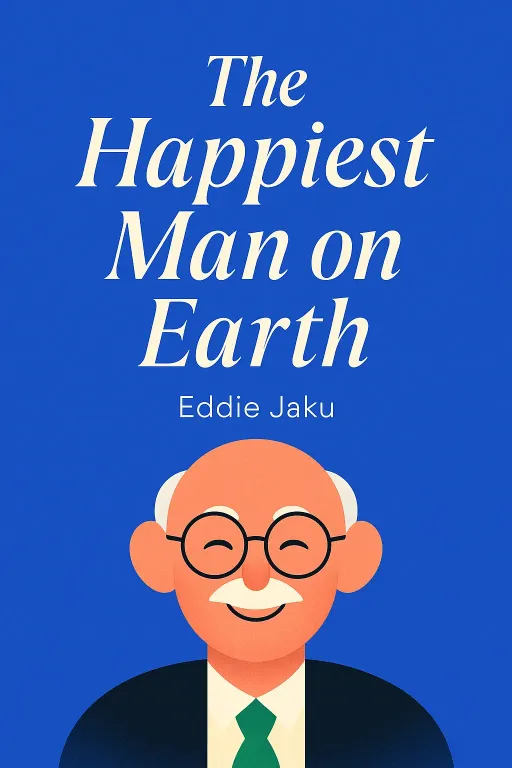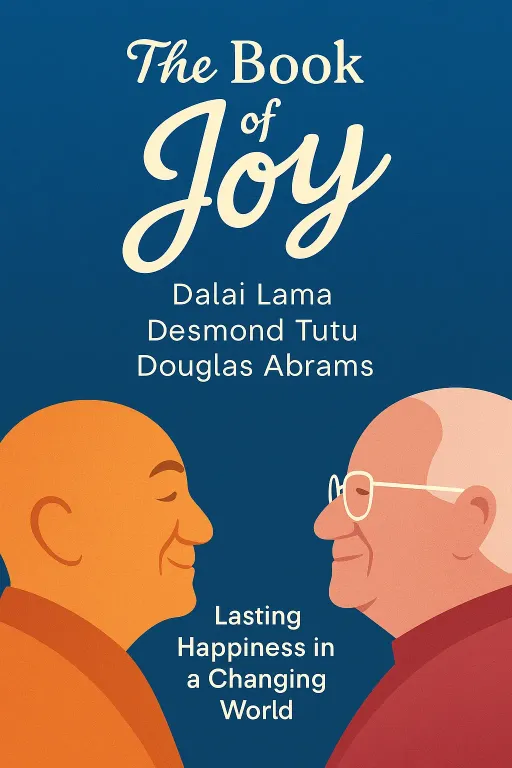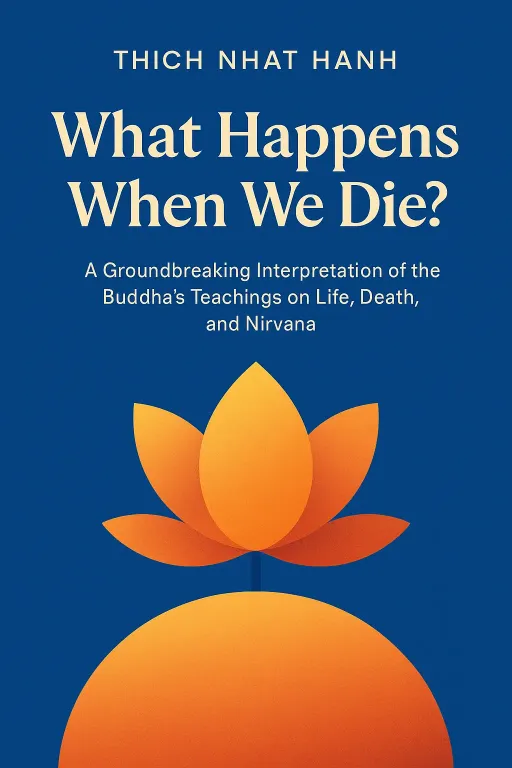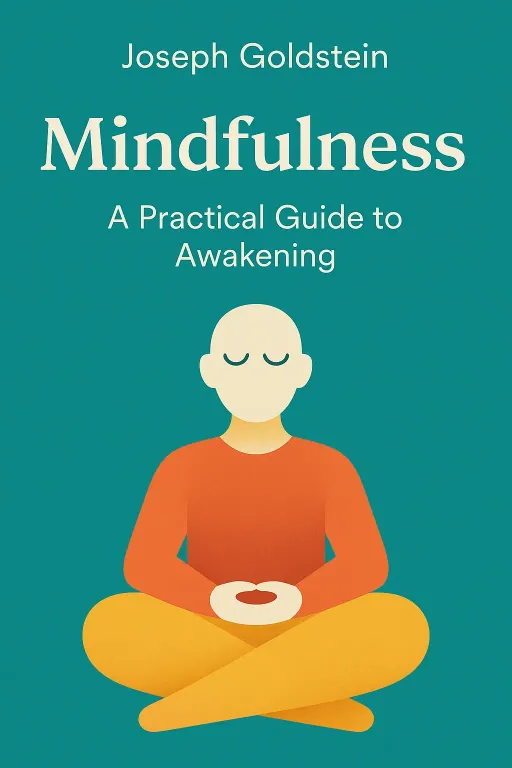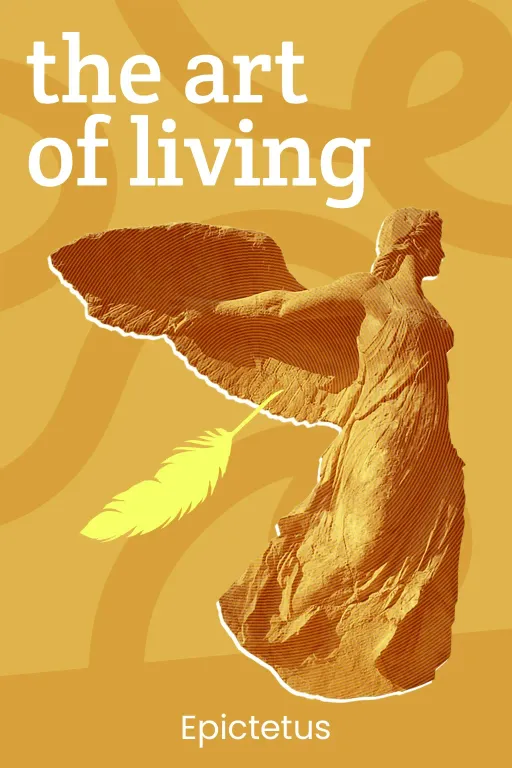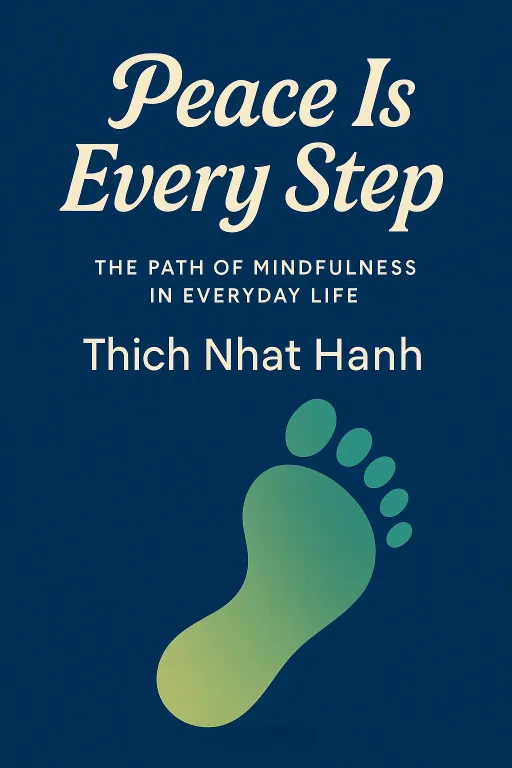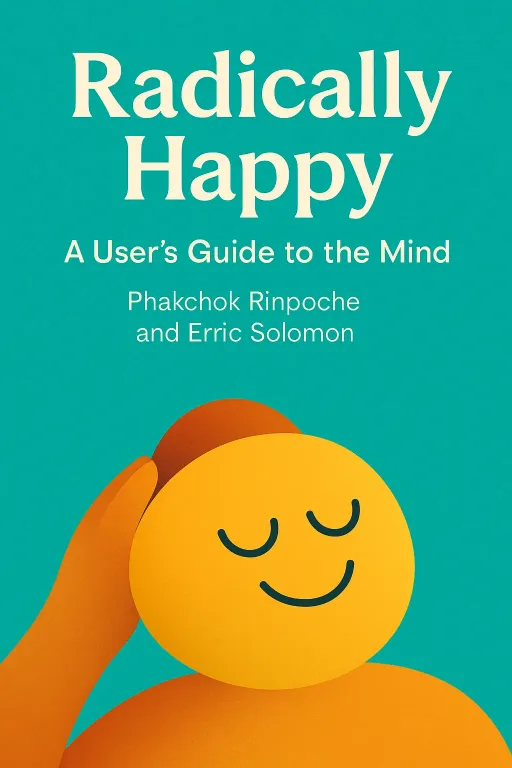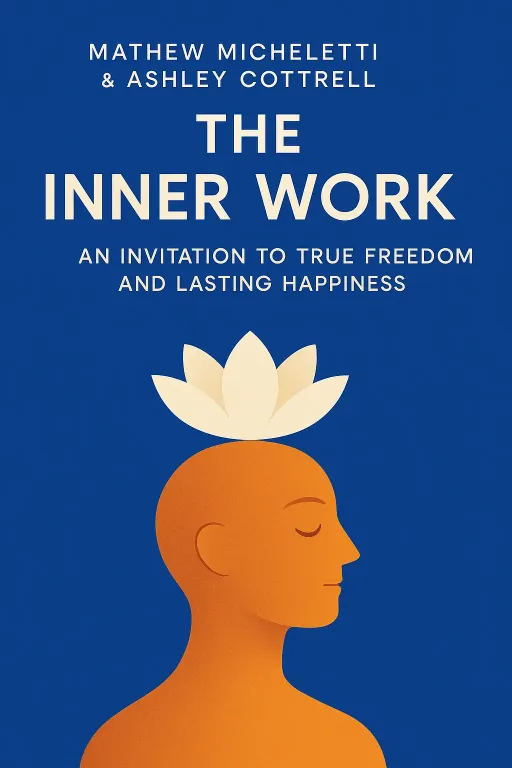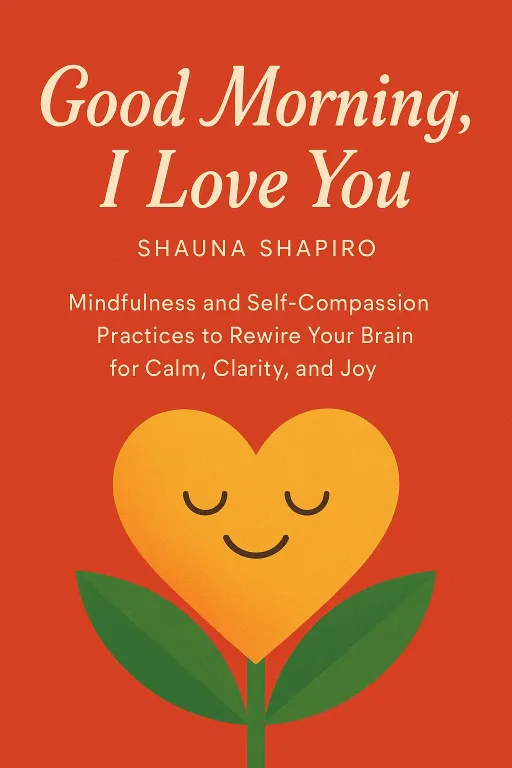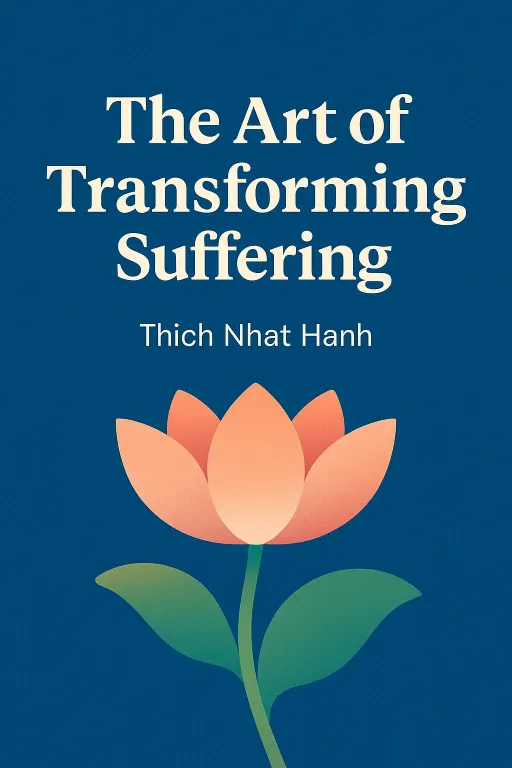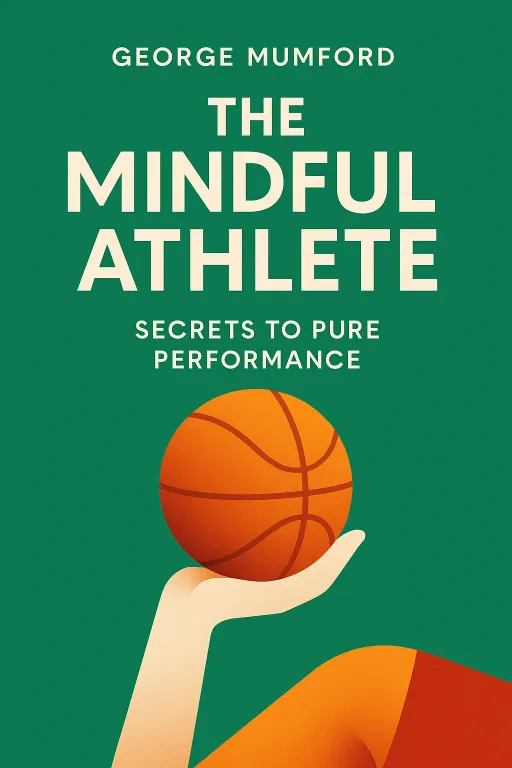
Michael Jordan's Secret Weapon
12 minGolden Hook & Introduction
SECTION
Laura: Michael Jordan’s most legendary shot—the one that clinched his sixth championship—wasn't about talent. It was about what he didn't do. The secret to his greatness wasn't more effort, but less. Sophia: Wait, less effort? That goes against everything we're taught about sports, about success, about everything. What are you talking about? Laura: Exactly! And that's the core idea in a book that became a secret weapon for champions, The Mindful Athlete by George Mumford. It’s a book that’s been widely acclaimed, not just by athletes but by people in all fields, for its practical approach to the mental game. Sophia: The Mindful Athlete. I feel like I’ve heard that name, George Mumford, mentioned in the same breath as Phil Jackson and the Bulls dynasty. Laura: You have. He was their mindfulness coach, their secret weapon. But what's truly fascinating is that Mumford himself wasn't some guru from a mountaintop. He was a former college basketball star at UMass, even roomed with the legendary Dr. J, Julius Erving. But his career was completely destroyed by injuries, which led him down a dark path to heroin addiction. He built these principles from absolute rock bottom. Sophia: Wow. From addiction to coaching Michael Jordan on his mental game? That’s a story in itself. It completely changes how I think about this. It’s not just theory; it’s born from real suffering. Laura: Precisely. It’s about forging resilience when you have nothing left. And it all starts with understanding what was really happening in that moment with Michael Jordan. Sophia: Okay, I’m listening. How does someone go from that dark place to teaching Michael Jordan how to... what, think less?
The Zone is Not Magic, It's a Skill
SECTION
Laura: It starts by redefining what we think of as peak performance. Let’s go to that moment. It's Game 6 of the 1998 NBA Finals. Bulls vs. Jazz. Under 20 seconds left, Bulls are down by one. The entire world is watching. Jordan steals the ball from Karl Malone. He brings it down the court, guarded by Bryon Russell. Sophia: I can picture it perfectly. The tension is unbearable. Laura: But for Jordan, it wasn't. He later described it as a state of profound calm. He said, "Once you get into the moment, you know when you are there. Things start to move slowly, you start to see the court very well." He wasn't thinking about the millions of people watching, or the championship on the line. He faked right, Russell slipped, and Jordan, with a clear, quiet mind, sank the game-winning shot. Sophia: That gives me chills. But it still sounds a little like magic. Are we sure this isn't just a fancy word for being 'in the zone,' something only a once-in-a-generation talent like Jordan can do? Laura: That’s the exact myth Mumford wants to bust. He argues the Zone isn't a magical gift. It's a trainable skill. He calls it being in the "eye of the hurricane." The storm of the game—the crowd, the pressure, the stakes—is raging all around you. But in the center, there is a space of perfect calm and clarity. And you can learn to live there. Sophia: The eye of the hurricane. I like that. It’s a powerful image. But how? How do you practice staying calm when everything is designed to make you panic? Laura: By transforming adversity into a tool. Mumford tells this incredible story from when he was teaching mindfulness in a maximum-security prison. The inmates were trying to meditate, to find that quiet center. But every few minutes, a loud, jarring voice from a Corrections Officer would blast over the intercom, shattering the peace. Sophia: Oh, that sounds impossible. I can’t even focus when my cat walks into the room. Laura: The inmates were infuriated. It was a constant trigger. But Mumford reframed it. He told them, "Don't think of that as a disruption. Think of it as a bell of mindfulness." Every time the intercom blared, it wasn't an interruption; it was a reminder. A signal to come back to your breath, to notice the anger rising, and to consciously return to that calm center. Sophia: Wow. So they used the very thing that was causing the chaos as the anchor to find the calm. Laura: Exactly. They learned to create a space between the stimulus—the loud voice—and their response. They stopped reacting automatically with anger and started responding with awareness. That is the fundamental skill. It’s not about eliminating the storm; it’s about finding your footing in its eye. And that’s a skill anyone, from a prisoner to a CEO to Michael Jordan, can cultivate. Sophia: Okay, I'm sold that it's a skill. A difficult one, but a skill nonetheless. But a 'calm center' sounds great in theory. How do you actually build it, especially when you're not a Zen master? What's the 'how-to'?
The Five Spiritual Superpowers
SECTION
Laura: This is where Mumford gets incredibly practical. He breaks it down into what he calls the "Five Spiritual Superpowers." And before you get skeptical about the name, think of it as a superhero's toolkit for the mind. Sophia: I admit, 'Spiritual Superpowers' sounds a little... out there. But I’m intrigued. What are they? Laura: They are: Mindfulness, Concentration, Insight, Right Effort, and Trust. They’re all interconnected, but they build on each other. It starts with Mindfulness, which is just what we talked about: paying attention to the present moment without judgment. It’s the foundation. Sophia: Okay, that’s the 'what.' What's next? Laura: Next is Concentration. This is the ability to focus that awareness. Mumford worked with an Olympic fencer, he calls him AK, who was brilliant but kept choking in big competitions because of negative self-talk. His mind would spiral. Sophia: I think we all know that feeling. The inner critic gets really loud. Laura: Mumford taught him a simple technique: Awareness of Breath, or AOB. Just focusing on the physical sensation of his breath. It didn't magically silence the negative thoughts, but it gave him an anchor. When the critical voice started, he could acknowledge it, and then gently return his focus to his breath. It was a mental bicep curl, strengthening his concentration. He eventually stopped fighting the thoughts and just let them pass, and he went on to qualify for the Olympics. Sophia: That’s a game-changer. It’s not about winning the argument with yourself, it’s about choosing not to engage in the first place. Okay, so we have Mindfulness and Concentration. What about Insight? Laura: Insight is about knowing yourself. It’s understanding the deep, often hidden, emotional blueprints that drive your behavior. Mumford tells this raw, heartbreaking story from his own childhood to explain this. Sophia: Oh, this sounds personal. Laura: It is. He grew up in a tough neighborhood, and for his sister's wedding, all he wanted was a popular haircut called a 'quo vadis.' It was a small act of self-expression. But his father, who struggled with alcoholism and anger, saw it as defiance. As punishment, his father dragged him into the bathroom and shaved his head completely bald. Sophia: Oh my god, that’s brutal. For a haircut? Laura: He was humiliated. And in that moment, he learned a powerful, damaging lesson: keep your mouth shut. Don't express yourself. Don't stand out. That emotional blueprint—that fear of being seen—stayed with him for decades, fueling his pain and, later, his addiction. Insight is the superpower of looking inward and seeing those old wounds, those hidden beliefs that are still running the show. Sophia: I love the 'superpowers' frame now. So, Insight is like realizing why I procrastinate on a big project—it's not that I'm lazy, but maybe it's a deep-seated fear of failure that I picked up years ago. Laura: Exactly that. It’s about excavating the 'why' behind your actions. And once you have that insight, you can begin to consciously choose a different path. Sophia: This is all starting to click. You build awareness with Mindfulness and Insight, you focus with Concentration... but what about 'Right Effort' and 'Trust'? They sound a bit more... philosophical. And you said at the beginning the secret was less effort.
Forgetting Thyself to Find Thyself
SECTION
Laura: This is the final, and most profound, part of the journey. It’s a paradox. After all this work of building skills, the final step is about letting go. To understand 'Right Effort,' Mumford wants us to picture two things. First, the Greek myth of Sisyphus. Sophia: The guy condemned to push a boulder up a hill for eternity, only for it to roll back down every time? Laura: That's him. Mumford says that is 'Wrong Effort.' It’s brute force, endless struggle, fighting against the current. It’s what most of us think of as hard work. Now, contrast that with Bruce Lee’s famous philosophy: "Be like water." Sophia: "Empty your mind. Be formless, shapeless, like water." I love that quote. Laura: Water doesn't fight the rock in its path; it flows around it. It's powerful but yielding. That is 'Right Effort.' It’s not about trying harder; it’s about acting with less resistance. It’s about aligning your energy with the flow of the moment, not fighting it. Sophia: But 'be like water' sounds passive. How do you win a championship by being passive? That feels like a contradiction. Laura: It’s not about being passive; it’s about letting go of the struggle. It's about quieting the conscious, analytical mind—the part of you that’s overthinking, judging, and worrying. Snowboarding legend Shaun White described his gold-medal-winning Double McTwist 1260—one of the most dangerous tricks ever—as a mixture of "being completely focused, then slightly not caring." Sophia: Slightly not caring while doing a death-defying trick. That’s wild. Laura: That's the essence of it! And it leads directly to the final superpower: Trust. After all the practice, all the preparation, all the mental training, you have to trust your body and your unconscious mind to do what they’ve been trained to do. You have to take a leap of faith. You have to forget yourself. Sophia: Forget yourself. So you let go of the 'I' that is trying so hard to control the outcome. Laura: Precisely. You let go of the ego. The archer doesn't make the arrow hit the target. The archer becomes one with the bow, the arrow, and the target, and the shot just happens. That's pure performance. It’s a state of flow that emerges when you've done the work and then have the courage to get out of your own way.
Synthesis & Takeaways
SECTION
Sophia: So the whole journey is about building this incredibly strong mental foundation—the awareness, the concentration, the insight—only to have the courage to step off it at the crucial moment and trust that you'll fly. Laura: Exactly. It's not about becoming superhuman. It's about becoming fully human—present, aware, and free from the internal noise that holds us back. The book’s ultimate message is that the real opponent is never on the other side of the court or across the boardroom table. The real opponent is the voice inside your own head. Sophia: And this is a game everyone is playing, whether they know it or not. Laura: Everyone. And the beautiful thing is that you can start training right now. Mumford's first practical exercise is simply to notice the space between a trigger and your reaction. The next time you feel that flash of road rage, or that jolt of anxiety when your boss emails you, just for a single second, don't act. Just breathe. That tiny pause is the space where the superpower begins. Sophia: That’s something anyone can try. It’s so simple, but so powerful. We'd love to hear from all of you listening. What's one 'inner game' you're playing right now in your own life? Let us know on our socials; we read every comment. Laura: It’s a journey we’re all on together.
